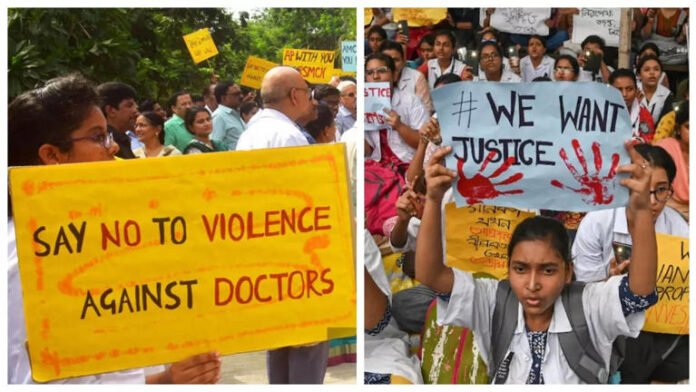The Supreme Court of India has deferred today’s hearing of the Kolkata rape-murder case, a decision that has added to the growing tensions surrounding the case. This decision comes amidst widespread protests across West Bengal, with thousands taking to the streets to demand justice for the victim and accountability for those responsible.
Background of the Case
The Kolkata rape-murder case has shocked the nation and drawn significant media attention due to its brutal nature and the involvement of high-profile individuals. The victim, a young woman, was brutally attacked and murdered, with evidence pointing towards a deeply disturbing crime that has sparked outrage across the country. The case has garnered widespread media coverage and public interest, partly due to the involvement of influential figures, which has added layers of complexity to the judicial proceedings.
Supreme Court’s Decision to Defer Hearing
The Supreme Court’s decision to defer today’s hearing was influenced by several factors. Initially, the Court had been scheduled to address several key issues, including bail applications for the accused and the progress of the investigation. However, the decision was postponed following a series of dramatic developments, including escalating protests and new evidence emerging in the case.
The deferral was also influenced by concerns over the safety of the involved parties and the need to ensure a fair and impartial trial. The Supreme Court expressed its commitment to ensuring that justice is served while also addressing the broader implications of the case, particularly given the heightened public scrutiny and ongoing demonstrations.
Protests and Public Outcry
The deferral of the hearing has only intensified the ongoing protests in West Bengal. Activists, student groups, and citizens have been staging demonstrations demanding justice for the victim. The protests have spread across various districts, with participants accusing the authorities of mishandling the case and failing to provide adequate protection for the victim’s family.
The protests have been marked by passionate speeches, candlelight vigils, and calls for reform in the criminal justice system. Many protesters argue that the case highlights deeper issues within the legal system, including the need for stricter laws and more efficient mechanisms to deal with such heinous crimes.
Legal and Political Implications
The postponement of the hearing has significant legal and political implications. From a legal perspective, the delay could impact the timeline for delivering justice and might affect the public’s perception of the judicial process. The case has already been subject to extensive media coverage, which could influence public opinion and put additional pressure on the judiciary.
Politically, the case has become a flashpoint, with various parties and leaders weighing in on the issue. Opposition leaders have criticized the state government’s handling of the case, while ruling party members have called for calm and emphasized the need for due process. The case has highlighted the challenges faced by the legal system in balancing the demands for justice with the need for a fair trial.
Moving Forward
As the Supreme Court prepares for the rescheduled hearing, the focus will likely remain on addressing the legal complexities of the case and ensuring that justice is served. The Court has emphasized the importance of a thorough and impartial investigation, and the deferral provides additional time for all parties involved to prepare and present their cases.
For the public and the victim’s family, the delay is a source of frustration and anxiety. They remain hopeful that the judicial system will ultimately deliver a fair verdict and that the protests will lead to meaningful changes in how such cases are handled.
In addition, the Supreme Court’s decision to defer today’s hearing in the Kolkata rape-murder case reflects the complex and sensitive nature of the case. As protests continue and new developments emerge, all eyes will be on how the judiciary navigates this high-profile case and addresses the broader issues it has brought to light.

